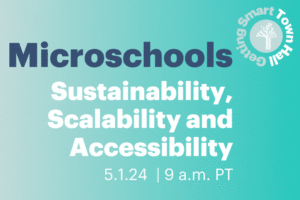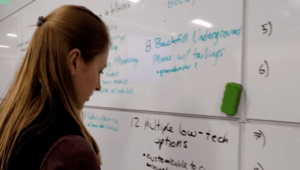Thinking About Impact Research at ASU

Sasha Barab, director of Center for Games & Impact (@gamesandimpact) at ASU hosted a small academic conference on Impact-Based Research (#ImpactResearch) today. He learned a lot about the subject leading the development of Quest Atlantis, a learning and teaching project that leverage a multi-user virtual environment for grades 4-9 and brings together education, entertainment and social commitments (watch this video of Dr. Barab discussing the potential of learning games).
Constructed with private game studio E-Line Media, the Tempe-based center posed a challenge for attorneys given the mission is to investigate, innovate, and cultivate “game-infused solutions to society’s biggest challenges” and “drive meaningful, sustainable learning, health and social impact.”
From his start in film Alan Gershenfeld saw power of media. E-Line has brought that full circle with lifecycle support for impact-focused games. Gershenfeld talked about this importance of understanding objectives, knowing your audience and context, developing a theory of change, and building an impact-friendly business model. He used the resuscitation and expansion of Gamestar Mechanic as case in point.
Leading voices. Game experts Michael Levine and James Gee provided color commentary for a series of TED talk summaries of work in impact sciences including:
-
Kris Gutierrez, CU, described learning as the organization of possible futures.
-
Craig Watkins (@scraigwatkins), UT Austin, talked about interest-based learning
-
Jon Price and Theresa Maves, Intel, talked about evaluating teacher development
-
Joel Gershenfeld described the use of data visualization tools to rate and build stakeholder alignment.
-
Tony Jackson, Asia Society, described a new study that underscores the importance of rich performance tasks for low income students.
-
Melissa Gresalfi, Vanderbilt University, said dispositions toward math are directly related to the kind of opportunities they’ve been offered.
A new American university. Jonathan Koppell, Dean of the College of Public Programs at ASU, described their unique embrace of excellence and access. Under Michael Crow’s leadership, ASU has been animated by 8 design principles:
Koppell said ASU embraces its mission to “change the life trajectory of people we admit” not just rely on exclusive admissions as a sign of quality.
The recently concluded ASU+GSV Education Innovation Summit has become the most important EdTech innovation stop on the conference calendar. Our coverage included these five posts:
- Day one coverage, ASU+GSV: Education Dreaming, including Reed Hasting, Magic Johnson, Laurene Powell Jobs, and Karen Cator;
- The panel I moderated on 16 Ways to Expand Access to Learning;
- Day two coverage, ASU+GSV: Education Powers The American Dream, including panels led by Rob Waldron, Josh Coates, Jaime Casap, and Elizabeth Stock;
- 10 announcements made at the conference; and
- 10 take aways from Tom Glover






0 Comments
Leave a Comment
Your email address will not be published. All fields are required.